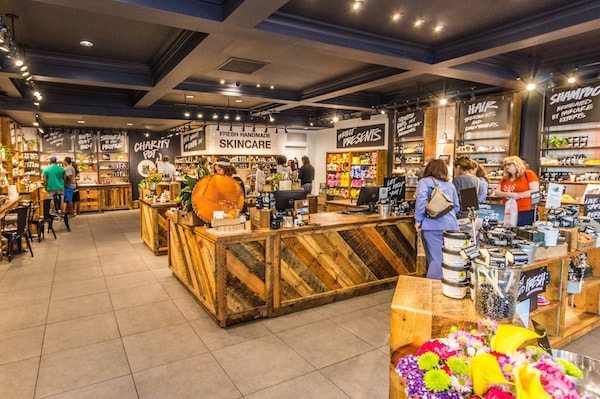
Plenty of people would love to break into farming, but beginners’ number-one barrier is access to land. With so much farmland already claimed—by older farmers but also increasingly by investors, corporations, and developers—desirable acreage is hard to come by. Plus, the price of farmland in the U.S. is sky-high.
Nationwide, farm real estate value, which includes all land and buildings, averaged $3,380 per acre in 2021, up 7% from 2020. More specifically, cropland value averaged $4,420 per acre, a 7.8% increase, while pasture value jumped 5.7% to reach $1,480 per acre.
In Wisconsin, the price is even higher. Last year, the average farm real estate value hit $5,190 per acre, with cropland costing $5,280 and pastureland running $2,520 per acre.
Many would-be farmers just don’t have that kind of cash, and it can be tough to secure financing for a multimillion-dollar land purchase. So, unless they have farmland in the family, their dreams of owning a farm may be dashed.
But that doesn’t mean they can’t become farmers. Renting land can be a viable alternative to buying it, especially for beginners, who may not be credit-worthy and who still have a lot to learn about agriculture. Of the 911 million acres of farmland in the contiguous U.S., approximately 39% is rented.
Of course, there are drawbacks to renting. The obvious big one is a farmer doesn’t own their land, which also might limit what they can do with it. Additionally, whereas owning land provides long-term security, leases may be short-term, leaving a farmer’s future in question. Renting also doesn’t let them build equity in land, a key perk of ownership.
But renting has many upsides too. It’s significantly cheaper than buying, which frees up money to purchase equipment, animals, crop inputs, and other infrastructure. Plus, renting gives beginning farmers more latitude to learn, make mistakes, and make sure they want to farm after all. And if they rent from a retiring farmer or farm-based organization, they might score mentorship, connections, or established customers.
Recognizing the barriers to land access and security, various nonprofits, land trusts, government programs, and other organizations are stepping up to help. For instance, Iroquois Valley Farmland REIT, featured at Edible-Alpha® Live!, provides long-term leases and mortgages to organic and regenerative farmers. Similarly, Yggdrasil Land Foundation leases land affordably to young farmers focused on organic, biodynamic, regenerative, and community-focused agriculture.
A 30-year contract with Yggdrasil is the reason Chaz and Megan Self are able to pursue their dream of farming. Having no family land or agricultural experience, the Grassway Organics founders would’ve had a hard time building their business without this arrangement, which Chaz calls “a dream.”
“It allows us to pay rent and not carry a massive debt load for buying land,” he explains in Edible-Alpha® podcast #114.“Most farmers are cash poor and equity rich, but we are kind of the opposite. We’re not rich, but we’re cashflow strong and equity poor.” With affordable rent, Chaz adds, they can pay themselves, save up money, and build equity in other places, such as their herd of Jersey cows.
While renting may not be the best solution for every farmer, it’s definitely a model worth exploring.
Chaz Self didn’t set foot on a farm until age 19, but that didn’t stop him and wife Megan from pursuing their dream owning a sustainable, organic, diversified ag business. With a 30-year lease on nearly 600 acres, the Selfs have grown Grassway Organics into a successful grass-based dairy and meat operation and thriving agritourism enterprise. Hear Chaz share their ups, downs, and lessons learned in this compelling episode.
And now, our roundup of the best food and beverage finance news, events and resources from around the web…

Business Model Insights
- Down with ‘hustle culture’ (Food Business News) – Many startup founders glamorize the grind, but toxic messages disguised as motivation to “hustle harder” may be harming their physical and mental well-being.
- It’s true: You really do need to spend money to make money (Nielsen Insights)
- Ingredient Shortages Hampering New Food Product Development (The Food Institute)

Raising Capital
- ReFED Launches New Tool to Track Funding Aimed at Food Waste (Food Tank) – Capital Tracker allows users to track capital investments in food waste reduction to see which types of solutions have received the most investment, along with the most active funders in this space.
- What if there was a different way? (The Intertwine Group)
- Unlocking Capital Under the Shop Floor (Food Manufacturing)

CPG/National Brands
- Consumers expect shared responsibility for the health of the planet (Innova Market Insights) – New survey reveals up to 25% of consumers have adjusted their product choices for environmental reasons. Plus, products carrying environmental claims are growing three times faster than total food and beverage launches.
- Waning interest in cooking at home creates opportunities, challenges for retailers, brands (FoodNavigator-USA)
- Report: Has grocery e-commerce hit its glass ceiling? (FoodNavigator-USA)

Market Trends
- Consumers trust food brands, but are not loyal: study (Food Dive) – More than 70% of U.S. adults have faith in food and beverage companies, far exceeding their trust in other industries—but they don’t hesitate to switch brands should that trust be broken.
- Specialty food sales swell to $175 billion (Supermarket News)
- Organic food sales continue to outpace conventional food sales (Food Business News)

Farming and AgTech
- Regrow partnership with food giants aims to scale regenerative agriculture (GreenBiz) – Now with ample evidence of benefit, it’s time for regenerative agriculture to become the default farming method. But to scale, food companies and farmers need a massive monitoring effort.
- Southwest Georgia Agri-Tourism Trail supports Black farmers, historic farms (New Hope Network)
- Meet the Modern Farmer Turning Manure Into Water (Modern Farmer)

Deals/M&A
- AgFunder-backed Chinova Bioworks raises $6m Series A funding for natural shelf-life extender (AgFunder News) – Vegan, allergen-free Chiber, made from upcycled white button mushroom fiber, can preserve dairy, plant-based meat, baked goods, sauces, spreads, and beverages.
- Hormel Foods and Target invest $1.7 million in Minnesota regenerative ag pilot project (Successful Farming)
- Sustainable coffee maker Steeped raises $5M through crowdfunding (Food Dive)

Industry Events
Virtual events:
- WWBIC/FaB Wisconsin Training Session: Specialty Foods: Get Your Product on a Shelf: 9/19
- Edible-Alpha® Immersion Training: Managing Uncertainty: Scenario Planning: 9/19–9/29
- WWBIC/FaB Wisconsin Training Session: Food Halls and Markets: 9/26
- FFI October Quarterly Trends Talk: 10/10
- Edible-Alpha® Immersion Training: Farm Financial Management Bootcamp: 11/15
In-person events:
- Soil Health Academy School Regenerative Farming and Ranching: 7/18–7/20 in Redwood Falls, MN
- American Cheese Society Annual Conference: 7/20–7/23 in Portland, OR
- MOSES Organic Field Day: Crop Rotations on Large-Scale Organic Farm: 7/21 in Madison, SD
- Rodale Institute Organic Field Day: 7/22 in Kutztown, PA
- Digital Food & Beverage: 7/25–7/26 in Austin, TX
- Chicken Marketing Summit: 7/25–7/27 in Braselton, GA
- International Fresh Produce Association The Foodservice Conference: 7/28–7/29 in Monterey, CA
- Minnesota Farmfest: 8/2–8/4 in Redwood County, MN
- Soil Health Academy School: Increasing Profitability of Corn & Soybean Farms Through Diversity: 8/9–8/11 in Waverly, KS
- Dakotafest: 8/1–8/18 in Mitchell, SD
- National Pizza & Pasta Show: 8/23–8/25 in Rosemont, IL
- Farm Progress Show: 8/30–9/1 in Boone, IA
- Soil Health Academy School: Increased Profits Through Stacked Enterprises & Direct Marketing: 8/30–9/1 in Bismarck, ND
- Food Automation and Manufacturing Symposium and Expo: 9/11–9/14 in Miami, FL
- Americas Food & Beverage Show: 9/12–9/13 in Miami, FL
- Midwest Mechanical Weed Control Field Day: 9/14 in Benton Harbor, MI
- International Baking Industry Exposition: 9/17–9/21 in Las Vegas, NV
- Soil Health Academy School: Transformational Dairying: 9/26–9/28 in Kinzers, PA
- Natural Products Expo East: 9/28–10/1 in Philadelphia, PA
- World Dairy Expo: 10/2–10/7 in Madison, WI
- Regenerative Food Systems Investment Forum: 10/12–10/13




